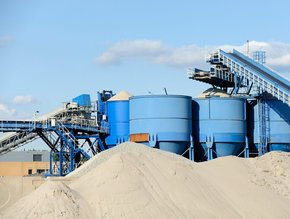UK Construction Output Dips Unexpectedly in May

British construction output fell unexpectedly in May on a dip in new private-sector housing work, suggesting the entire sector and UK economy has lost momentum in Q2 2014.
The figures from the Office of National Statistics (ONS) show that construction output declined 1.1 percent in May following a 1.2 percent rise in April, causing the annual rate of growth to slow to a six-month low of 3.5 percent.
In the last three months, compared with the period ending in February, construction, a sector which accounts for 6.3 percent of the economy, fell 0.8 percent, the weakest level since October 2012.
A housing sector recovery had driven construction growth since last year had been a major driver of construction growth. Housing currently accounts for more than a third of new building work, up 19.4 percent year-on-year.
Private sector housing however, accounting for some three quarters of new housing stalled in May. Public-sector housing grew by 5.2 percent, leaving an overall housing growth of 1.1 percent.
The figures are particularly disappointing following last week’s Markit purchasing managers' survey last week which revealed that strong gains in housebuilding for June helped the sector to its fastest rate of expansion for four months.
It also suggests an over-reliance on residential construction to the construction sector’s prosperity.
UK house prices are up by about 10 percent on last year, although there are emerging signs that the housing market is slowing; mortgage approvals in May were at their lowest level in 11 months, partially due to lenders imposing tighter affordability checks.
However house-building remains well below pre-crisis levels, with the Bank of England saying it is essentially powerless to counter the housing shortage preventing further growth.
Responding to the ONS figures, Michael Dall, Lead Economist at construction intelligence specialist Barbour ABI, said: “While it’s important to remember that monthly construction output can be volatile, there are signs that the growth we’ve become used to over the last six months is beginning to plateau.
“For example, based on our monthly Economic & Construction Market Review, we know that May was the second consecutive month where the total value of construction contracts fell year-on-year.
“Looking ahead, the long-term picture is still one of growth. The Government’s latest construction pipeline published last week, which represents £116 billion of work, should be a huge boost to the industry. Plans of new projects and significant spend in the infrastructure sector will also help to dispel concerns that the industry is becoming too reliant on the housing sector.”






